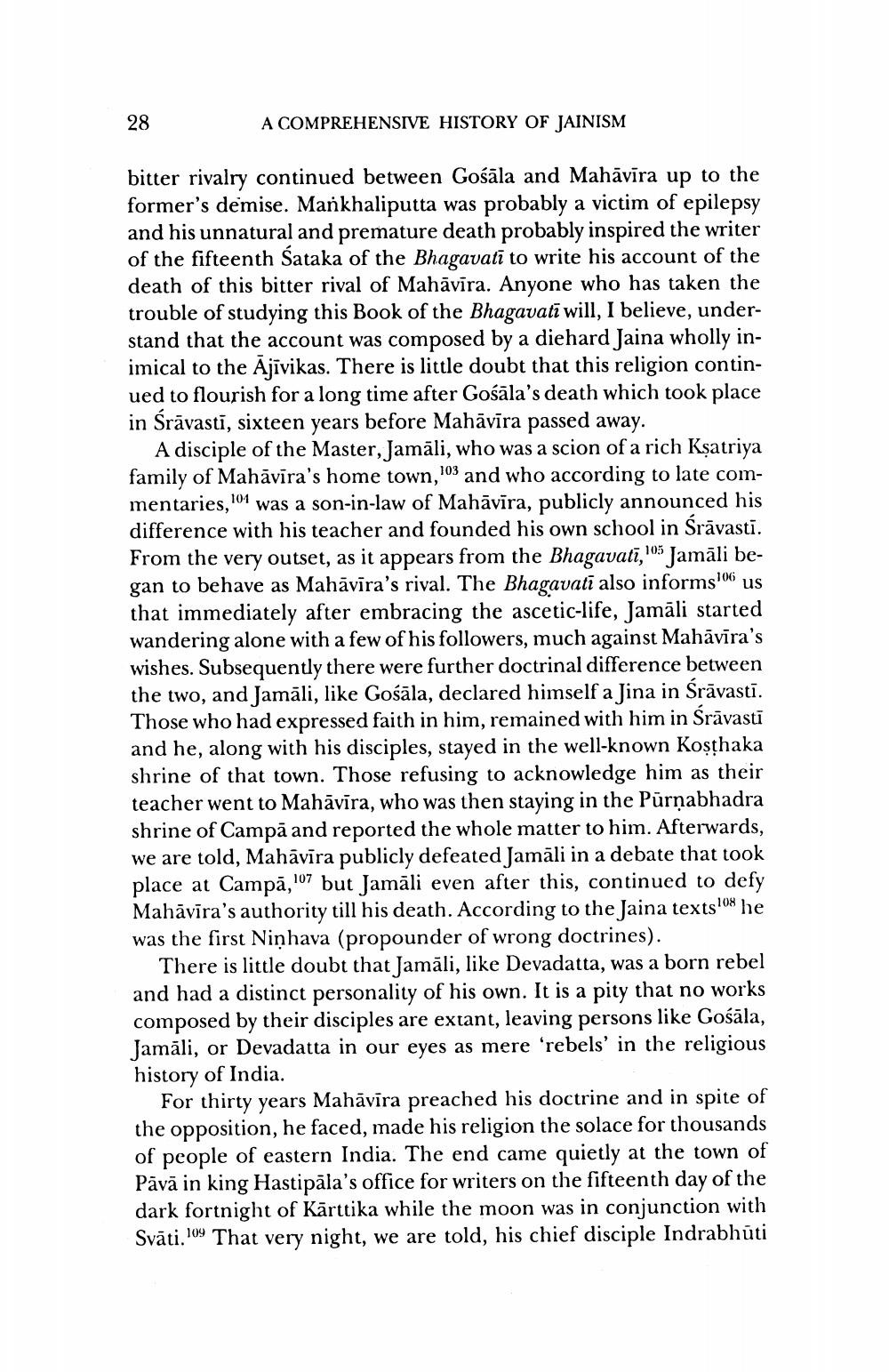________________
28
A COMPREHENSIVE HISTORY OF JAINISM
bitter rivalry continued between Gośāla and Mahāvīra up to the former's demise. Mankhaliputta was probably a victim of epilepsy and his unnatural and premature death probably inspired the writer of the fifteenth Sataka of the Bhagavati to write his account of the death of this bitter rival of Mahāvīra. Anyone who has taken the trouble of studying this Book of the Bhagavatī will, I believe, understand that the account was composed by a diehard Jaina wholly inimical to the Ājivikas. There is little doubt that this religion continued to flourish for a long time after Gośāla’s death which took place in Śrāvasti, sixteen years before Mahāvīra passed away.
A disciple of the Master, Jamāli, who was a scion of a rich Ksatriya family of Mahāvīra's home town, 103 and who according to late commentaries, 101 was a son-in-law of Mahāvīra, publicly announced his difference with his teacher and founded his own school in Srāvasti. From the very outset, as it appears from the Bhagavatī,105 Jamāli began to behave as Mahāvīra's rival. The Bhagavatī also informs us that immediately after embracing the ascetic-life, Jamāli started wandering alone with a few of his followers, much against Mahāvīra's wishes. Subsequently there were further doctrinal difference between the two, and Jamāli, like Gośāla, declared himself a Jina in Srāvasti. Those who had expressed faith in him, remained with him in Srāvasti and he, along with his disciples, stayed in the well-known Kosthaka shrine of that town. Those refusing to acknowledge him as their teacher went to Mahāvīra, who was then staying in the Purnabhadra shrine of Campā and reported the whole matter to him. Afterwards, we are told, Mahāvīra publicly defeated Jamāli in a debate that took place at Campā, 107 but Jamāli even after this, continued to defy Mahāvīra's authority till his death. According to the Jaina texts/08 he was the first Ninhava (propounder of wrong doctrines).
There is little doubt that Jamāli, like Devadatta, was a born rebel and had a distinct personality of his own. It is a pity that no works composed by their disciples are extant, leaving persons like Gośāla, Jamāli, or Devadatta in our eyes as mere 'rebels' in the religious history of India.
For thirty years Mahāvīra preached his doctrine and in spite of the opposition, he faced, made his religion the solace for thousands of people of eastern India. The end came quietly at the town of Pāvā in king Hastipāla's office for writers on the fifteenth day of the dark fortnight of Kārttika while the moon was in conjunction with Svāti.109 That very night, we are told, his chief disciple Indrabhūti




